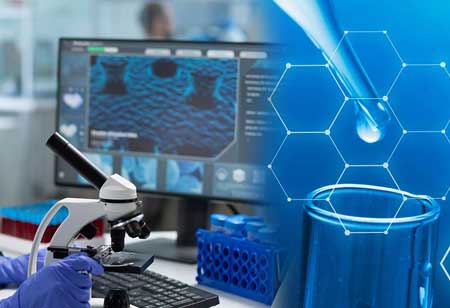The specialty chemicals business, present in many vital industries worldwide, including automotive, aerospace, and electronics, is well-positioned to contribute to sustainability.
FREMONT, CA: Organizations operating within the industry are already contributing significantly to improving its sustainability, working together to make decisions about policy and providing support for specialty chemicals. The specialty chemicals industry is present in a wide range of critical sectors across the world's economy, including the automotive, aerospace, and electronics industries, amongst others; this sector is in an excellent position to make a significant contribution to the field of sustainability. International attention is required to address the pressing need to safeguard human and environmental health. Supply and value chains are becoming increasingly complex and globalized, and specialty chemicals are essential in other economic sectors.
The top players in the specialty chemicals industry have made industry-wide sustainability commitments and efforts and have made significant progress in their ongoing reduction of greenhouse gas emissions. Sustainability is an essential topic for the specialty chemicals industry. There is still space for development, especially in the remaining market, emphasizing ecologically friendly feedstock, clean thermal energy, sustainable sourcing, circular economy activities, and product innovation. Even if energy use is changed to renewable sources, it would not be possible to readily replace the carbon-based feedstock that production processes rely on.
The revolution of business: Businesses are being forced to contend with rising carbon pricing, pressure from essential stakeholders, and increased complexity in an industry that is fundamentally energy-demanding. A fundamental change toward the strategic adoption of emerging technologies, new collaborative processes, and digital enablers is required to transition to a clean sector. Because of the magnitude and complexity of the infrastructure, the industry will typically require a reliable partner's assistance to implement the change.
Green feedstock and circularity: Both as a fuel source and a supply of raw materials for the chemical industry, renewable feedstocks are destined to gradually replace sources of fossil origin (oil, gas, and coal) in the coming years. The specialty chemicals industry comprises a wide variety of market-oriented and functional products, all of which stand to gain from implementing sustainable sourcing techniques and circular thinking. It contains a significant amount of waste made of plastic, which is an essential factor in production.
Eco-friendly thermal: There are significant opportunities to decarbonize the thermal needs of these plants because a large number of thermal power plants rather than electrical power plants get used in the specialized chemical industry. Although there is a smaller pool of clean alternatives than there are for decarbonizing power, green thermal solutions are available.
Development of new products: The supply chain can benefit when creative solutions are found to reduce the adverse effects of products on the environment. Green chemicals, which have a minimal carbon footprint, are one of the most significant growth areas in the specialized chemicals business.
Check Out This: Electrical Business Review

